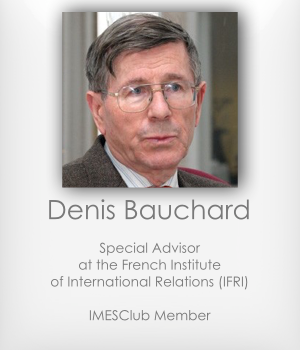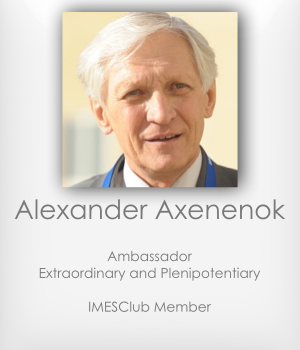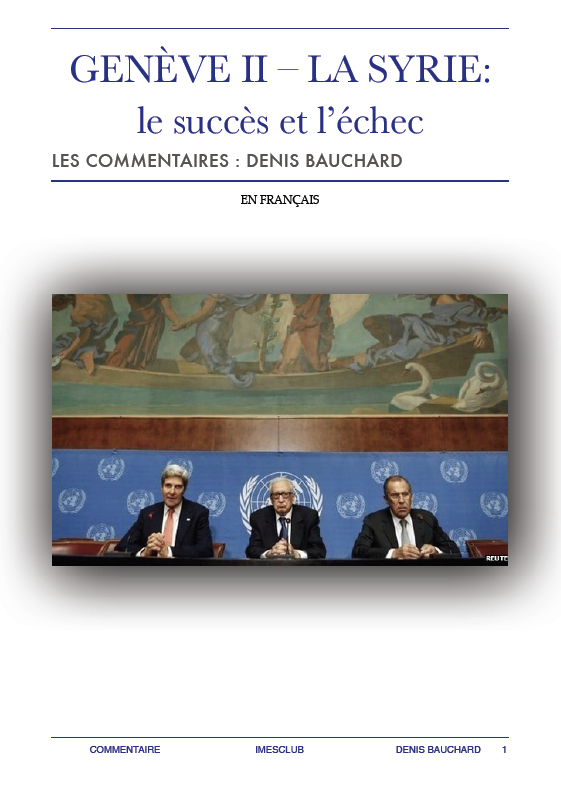GENEVA-II – SYRIA: success and failure [in En and Fr]
GENEVA-II – SYRIA:
SUCCESS AND FAILURE
 The fact that Geneva-II took place is indeed a success itself, as initially there was a lot of skepticism about the possibility of holding a conference on Syria, taking into account the deep divide between the Syrian authorities on the one hand and the opposition on the other, including the Coalition.
The fact that Geneva-II took place is indeed a success itself, as initially there was a lot of skepticism about the possibility of holding a conference on Syria, taking into account the deep divide between the Syrian authorities on the one hand and the opposition on the other, including the Coalition.
But it must be said that this conference has not yielded any tangible results, and in this very sense it is still a failure. The only tiny breakthrough was achieved not right away but a few days later concerns humanitarian aspects and the possibility of providing humanitarian aid to the besieged people of Homs. But the fulfilment of this decision faces serious implementation difficulties.
Why did this failure of the Geneva-II take place? In fact the conference was some sort of a shadow theater. There was essentially a reaffirmation of the already known positions. Concerning Bashar al- Assad, we are manifestly not willing to negotiate seriously for many reasons : it is due to the fact that the regime feels strong in both militarily and diplomatic terms .
On the military terms, he managed to avoid falling of the major cities into the hands of the rebels and he is gradually regaining control of the cities of Hama, Homs , Aleppo and Damascus. He is also in a strong political position, while the Coalition that unites the "democratic" opponents is more divided than ever, even though it could seem united at a first sight. The Syrian representative, Mr Walid Moallem took the opportunity to develop in Geneva an extremely aggressive and uncompromising rhetoric.
However, despite its weaknesses, the opposition has apparently demonstrated, that it is holding a solid position. It looks good and perhaps has even acquired a new legitimacy. A sign of this is a meeting of its president Ahmad Jarba with Russian authorities in Moscow. But does this opposition truly represent all the fighters? It is probably less representative, as the majority of fighters on the ground belong to rather Salafi or jihadi groups.
In fact the current issue exceeds the Syrian territory. The promotion of democracy is not a common goal for all the combatants. The situation in Syria is becoming a concern for several reasons. First of all, Syria becomes a seat of international jihadism, with groups that claim methods and ideology of Al Qaeda. This can worry the international community, particularly the United States, Europe and Russia.
What is happening in Syria more and more appears to be a clash between Sunnis and Shiites and beyond this religious conflict there is a clash between two rival powers such as Iran and Saudi Arabia. It became a sort of proxy battlefield between the two great powers of the Middle East that are competing for influence not only in the Persian Gulf but also in the Muslim world.
Given this situation how will the events develop? Several factors must be taken into consideration. On the one hand, even if the regime of Bashar Al -Assad is now in a rather strong position, it has a number of weaknesses. He had to resort to the help from Iran, that has sent units of the Al-Quds Brigade and many "advisors" who came to give him effective support, particularly in the field of intelligence and urban combat. Hezbollah has sent many seasoned battle-hardened soldiers, but Hezbollah is a shady ally. Finally, the regime did not hesitate to mobilize poorly organized Alawite militia, over which it is loosing control, to defend itself and fight the opposition.
In fact one may wonder if the regime itself has any interest to negotiate.
It is clear that Europe, the United States and Russia have a number of mainly mutual interests to take care of in the context of this conflict: the Western countries and Russia are very concerned by the development of jihadism that may threaten their long-term security. In fact, among the jihadist combatants there are many citizens of these countries. Taking France alone, 700 French citizens left for jihad in Syria.
There is also a mutual interest as our countries are very concerned about the prospects of the Syria's fragmentation, remembering the example of Iraq that would make the Middle East a zone of uncontrolled turbulence.
There is only a political solution: military solution is unacceptable in present circumstances. This solution requires the absence of prerequisite conditions for the negotiations and more discreet negotiations than those currently taking place within the framework of the Geneva to make them more efficient. They should include all the concerned parties, all the concerned countries: the presence of Iran as well as of Saudi Arabia is essential to arrive to a solution. A political solution should not only provide a transitional government, but also a guaranteed plan to protect minorities.
These negotiations can only be difficult and long. Russia, the United States and Europe are interested in putting pressure on both Iran and Saudi Arabia on the one hand but also on the Damascus authorities as well as the Coalition on the other hand to reach a compromise solution.
Available in French just in one click;
Alexander Aksenenok on Geneva-2
 The first round of talks on Syria ended yesterday in Geneva. Now it’s important to figure out the outcome of the first round. Certainly, bearing in mind the severity of the internal conflict, the extent of violence and mercilessness in struggle for power in this unfortunate country one hardly anticipated any kind of quick and considerable shifts in its resolution. Nevertheless the very fact of holding a conference that wasn’t sabotaged by direct conflicting parties expressing public recriminations and along with divergent positions looks reassuring. It is worth mentioning that despite the fact that talks were indirect through the agency of experienced diplomat Lakhdar Brahimi the fiasco was avoided, though Mr. Brahimi himself anticipated any kind of unexpected events. This didn’t happen what is also promising.
The first round of talks on Syria ended yesterday in Geneva. Now it’s important to figure out the outcome of the first round. Certainly, bearing in mind the severity of the internal conflict, the extent of violence and mercilessness in struggle for power in this unfortunate country one hardly anticipated any kind of quick and considerable shifts in its resolution. Nevertheless the very fact of holding a conference that wasn’t sabotaged by direct conflicting parties expressing public recriminations and along with divergent positions looks reassuring. It is worth mentioning that despite the fact that talks were indirect through the agency of experienced diplomat Lakhdar Brahimi the fiasco was avoided, though Mr. Brahimi himself anticipated any kind of unexpected events. This didn’t happen what is also promising.
One can be guardedly optimistic to presume that until the beginning of the second round of talks scheduled for February 10, 2014, conflicting parties will do their homework in direct contact with two prime sponsors of the Geneva-2 – Russia and the USA – with the UN assistance. It seems like the door of diplomacy is still open on finding a compromise, however it will be hard to strike it and for sure this will take long. Before February 10 it is of crucial importance to maintain contacts and undertake confidence-building measures discussed during the first round. In particular this relates to unblocking humanitarian situation in Homs. This issue was particularly stressed by the Syrian opposition and specifically discussed during the talks. Another question is that parties see different priorities and interpret phrasing of the Geneva-1 final document differently. However its phrasing can be interpreted differently. This is diplomacy. Otherwise Geneva-1 could end up without result. Variant readings were during resolution of conflicts in Bosnia and Eastern Slavonia. But having any kind of core document is better rather than having none. This is the alphabet of diplomacy. Now there comes a point to prepare ground for further negotiations. The cornerstone could be rather made of anti-terrorism efforts, claimed by the Syria government delegation, or discussions around transitional government body composition and authority, written down in the Geneva-1 final document.
I think both issues are equally reasonable. If same perception formed this might create atmosphere for compromise. One should complement another. If negotiations follow this path, the second round of talks may be more productive than the first one.
Translated from Russian by Evgenia Efimova












